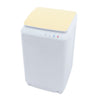BURLINGTON — A proposed $2.2 million sewer expansion project to extend sewers to 157 homes in a neighborhood south of Lake Garda goes to referendum Tuesday and officials are hopeful it will pass.
“I am confident that it is going to pass this time,” said First Selectman Ted Scheidel, adding that there were a couple of reasons why voters did not accept two similar referendum items held in recent years.
“I think that people who were not apart of the process were given the idea that it was going to increase their taxes. The bottom line is, and what we’ve been saying is, the people who benefit from the project pay for the project,” he said.
Another area of voter discontent, Scheidel said, was with homeowners who had recently bought improved septic systems.
WPCA Chair Paul Bystrak said he also has a positive feeling about the vote.
“There’s pollution and we have to do something about it, and this is the least expensive solution to the problem,” he said.
The Bristol-Burlington Health District has been conducting waste-water management studies in the area since 1993 and has found that nitrate levels in the water are exceedingly high. Because septic systems in the area keep failing and are hard to replace because of poor soils and small lot sizes, the contamination continues to seep into the ground water. Bystrak said the sewers will take the pollutants out of the water and to the Farmington Sewage Treat-ment Plant, adding that over time, residents will see a decrease of contaminants in the water.
Though the previous sewer project referendums were defeated, WPCA is confident residents will come through, aslong as they understand the proposal.
Bystrak said that in the past, taxpayers have misunderstood the fact that only households in the project area will be assessed and charged for the line, hookup and sewer usage fees.
The estimated assessment cost is about $10,500, or $525 a year, per home to be paid back over 20 years. The cost of hooking up to the sewer line is likely to be an additional $600-$2,000, depending on how close the line is to the house and how many hookups are required.
Once a home is connected to the line, the homeowner must begin paying sewer-usage fees.
To satisfy angry complaints from residents who recently purchased new septic systems, WPCA modified its hookup deferral policy so that a household with a septic system under 16 years of age can defer hookup, provided the system meets certain requirements.
Scheidel said the change in policy helped garner more support from residents who’ve recently purchased new systems.
A residency is eligible for a two-year hookup deferment for up to 16 years if a it has more than six-tenths of an acre of land, the septic system meets WPCA and state codes and is inspected, pumped and cleaned every two years.
If the homeowner does not meet the requirements, he or she will have to hook up to the line within a year. Additionally, the deferral does not postpone the assessment payment but does delay the payment of running the sewer line to the house and the annual sewer usage fee.
State funding for the project is likely to be lost if the referendum fails, Bystrak said, and added that the project itself will be “thrown back into limbo.”
“Right now, the state isn’t ordering us to do anything about the pollution because we’re taking steps to remedy it, but the state wants the pollution remedied in this area,” he said.
“The problem is not going to get any better, so we have to do something. This is the best, easiest and safest way.“
More than likely, if the referendum fails, WPCA will be ordered to do more data gathering studies, which will, Bystrak said, cost the “whole town” more money and “not just the people in the project area.”
A paper-ballot vote will be held in Town Hall from 6 a.m. to 8 p.m.













